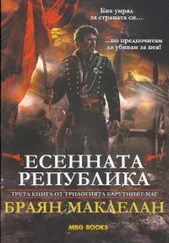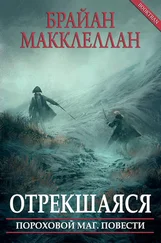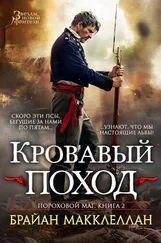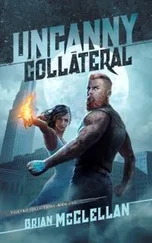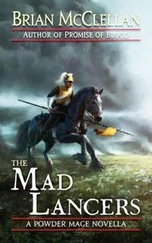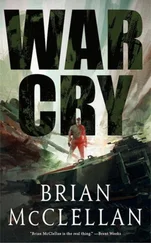“Son of a… Damn it, Warsim, this is a safe house. I train people here. People see you coming in here, wearing that, at this hour and…” Michel swore to himself several more times. His foul mood was just finally starting to turn for the better and Warsim had to show up and ruin his favorite safe house. “What the pit is it?”
Warsim ducked his head, grimacing. “Sorry, sir. I didn’t have much of a choice. You’ve been summoned to the grand master’s office. Fidelis Jes wants to see you.”
“Why?” Michel was taken aback. He wasn’t a Gold Rose. He had no dealings with the grand master. A cold sweat broke out on the back of his neck. “Me? He asked for me by name?”
“That’s what I was told.”
Michel pushed away his beer and desperately hoped he’d have time to sober up. Pit, he was sober now. Being called into the grand master’s office was like being dunked in the bay. “Right. What time?”
“You have an appointment for eight fifteen.”
Michel checked his watch and glanced over at Dristan. “Get out of here,” he said. “Lesson canceled.”
“Should I come back tomorrow?”
“No. If things work out, I’ll come find you soon and we’ll get you back in training.”
“And if not?”
Michel double-checked his watch. The grand master. Bloody pit. “Forget we ever spoke.”
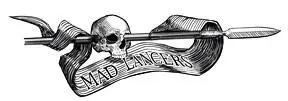
“Progress.”
It was an unimposing word, and not even that particularly fun to say, but it was bandied about in the newspapers so much that you’d think it was the name of Fatrasta’s new god. As if Fatrasta, a land of bickering immigrants, a twice-stolen nation of industrialized robbery, would ever spawn its own god. Landfall, the capital city of Fatrasta, would chew up a god and spit it out and it would barely make the newspapers.
Styke sat squeezed on an uncomfortable wooden bench in a narrow hallway. There were half a dozen others on the same bench – broken, beaten men who looked twenty years older than their age. They stared at the floor or the ceiling, avoiding eye contact, either praying or buried in their own desperate thoughts. Light streamed in through a high, barred window, and someone with a rickety cough hacked out their lungs in a nearby room.
On Styke’s lap was a worn, four-month-old newspaper, with PROGRESS emblazoned across the front of the first page. He considered the word for several minutes and thought of ripping the paper up as a way to vent the disgust it caused in him, but it was hard enough to get a newspaper in the labor camps and he’d traded a week’s tobacco ration for this one.
Instead, he produced a semi-carved piece of wood, clutching it as tightly as he could manage with his mangled left hand. With his right he began working at the wood with a small knife he’d stolen from the mess hall, thumb on the back of the blade, shaving bits off mechanically as he read.
The newspaper reported Adran mercenaries hard at work “taming the frontier.” Landfall was to open three more labor camps around the city to accommodate convicts shipped over from the Nine. Riots had broken out in the Palo quarter over the public hanging of a young radical. Trade had still not normalized with Kez, despite their civil war ending six years ago.
Styke snorted. The world, as he determined from the contents of any newspaper he could get his hands on, had changed little in the ten years since his sentencing. It was still filled with the greedy, violent, poor, angry, and not much else. He shifted his attention from the paper to the carving in his hand, whittling details into the soft pine for the next several minutes.
He held his handiwork up to the morning light. It wasn’t a bad little canoe, if he did say so himself. It was as long as his palm, thin and sleek, the outside covered in Palo markings. Certainly well done despite a dull knife and a crippled hand. He blew shavings off the back of his arm, then folded his newspaper and forced himself to stand, scowling as it took his right leg just a few seconds too long to obey his command.
He walked to the door leading into the courtyard and opened it a crack. Just outside waiting on the stoop was a young girl, though one might have easily mistaken her for a boy behind the mask of grime and filth that came from living in a labor camp. She was barefoot, wearing an old shirt of Styke’s that had to be tied at the neck and waist to keep it from falling off. She looked like a starving sparrow with half its feathers plucked out.
“Celine,” he whispered.
The girl perked up, turning her head. “Ben! You get out?” she asked excitedly.
Styke shook his head. “Haven’t even gone inside yet,” he responded. “Here.” He slipped the canoe through the crack before a guard could notice the door was open. “It might be a couple hours.”
“I’ll wait.”
Styke closed the door quietly and limped back to his seat, suppressing a groan as he lowered himself onto the hard bench. One of the other inmates glanced toward the door, then over at him, but quickly lowered his gaze.
Only a few minutes passed before a door opened at the far end of the hallway and a guard appeared. Styke couldn’t remember his name, but he knew he’d served in the Kez army as military police back before the war. He was a big man, taller than most with forearms as big around as powder kegs. The guard looked out across the sorry lot on the bench and whirled his truncheon absently. He wore the same sunflower-yellow smocks as the other guards, a facsimile of the Fatrastan military jackets that Styke himself used to wear.
He glared at Styke. “You,” he said. “Convict 10642. You’re up.”
Styke climbed to his feet and limped toward the guard.
“Hurry it up there,” the guard said. “I haven’t got all day.”
I wonder, Styke thought to himself, what you’d look like without arms.
“Pit,” the guard breathed as Styke came up beside him, “you’re a big one, aren’t you?”
Styke averted his gaze. He knew what kind of attention his size attracted. It was never good, not here. Guards liked to make examples of the biggest inmates to keep everyone else in line.
I could squash you like a bug. The thought came unbidden, and Styke quickly suppressed it. No room for that kind of thinking here. He was a model inmate, and he’d continue to be until his time was done, or else he’d be here until they worked him to death. A brief memory flashed through his mind – blood-spattered gauntlets on his fists, sword in hand, belting out a lancer’s hymn as he waded, unhorsed, through enemy grenadiers, each one as big as this arrogant guard. He blinked, and the vision was gone.
The guard finally took a step back and held the door open for Styke, directing him down another dusty hall with only a single window. “First door on the right.”
Styke followed the instructions and soon found himself in a small, brick room. It reminded him of a confessional at a Kresim church, though instead of a wicker screen between him and the next room over, there was a thick, iron grate over the window. Above it was a sign in broad letters that said PAROLE. The room was well lit, probably so the judge could get a good look at the monster he was about to let loose on the world.
“Please sit,” a voice said from behind the iron grate.
Styke sat on a low wooden stool, nervously listening to it creak beneath his bulk.
Several moments of silence followed, until Styke lifted his gaze from the floor to peer through the iron grate. He’d been through this process twice before now, and he knew the song and dance. Parole judges were simply whichever senior prison administrator had the time for you, meaning that the difference between freedom and another two years of hard labor depended heavily on whether they’d gotten up on the right side of the bed that morning.
Читать дальше


